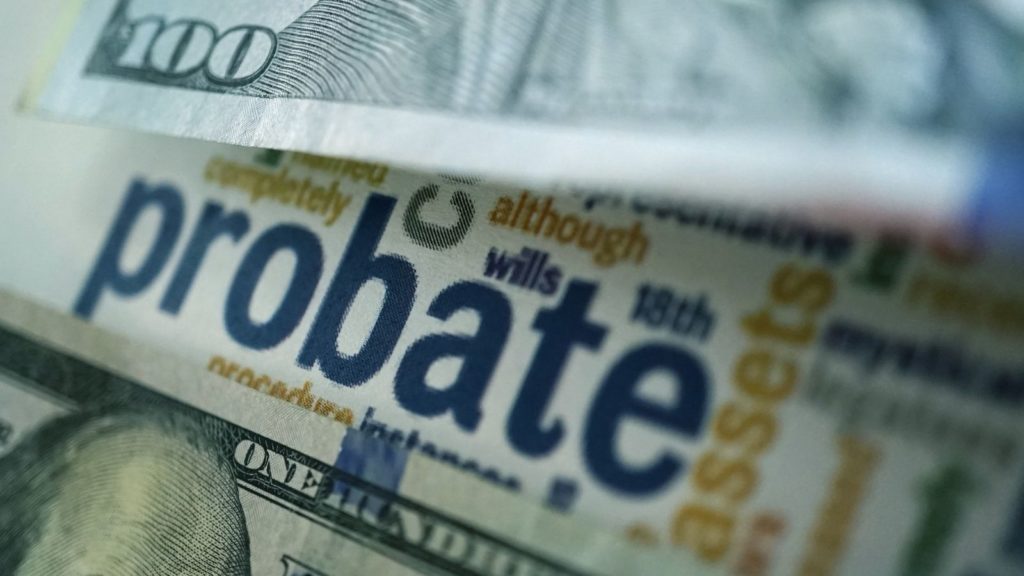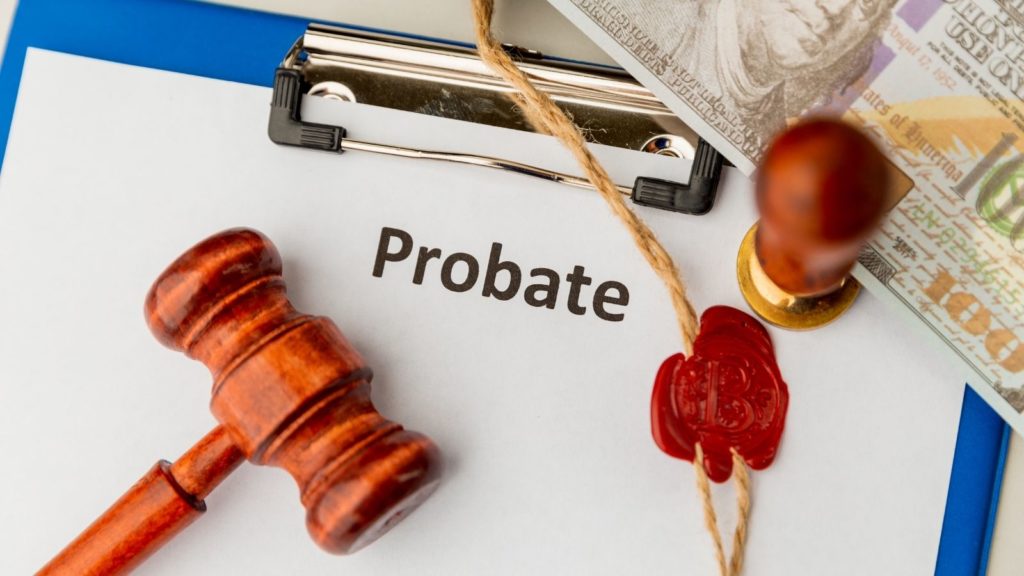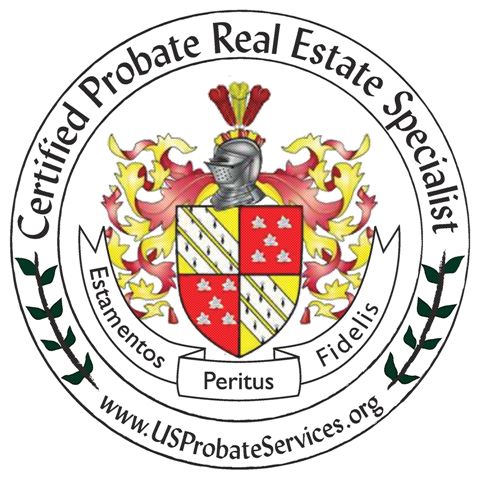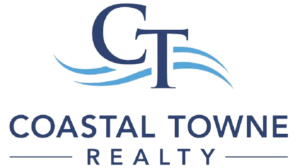You may be wondering “How does an executor sell a home?” if you are tasked with handling the affairs of a loved one after they have passed. There is a lot to know in Hampton Roads, especially if the house is wrapped up in the probate process.
Dealing with probate is not something an average person does on a day-to-day basis. If you’ve found yourself in the position of having to sell your parents’ home here in Hampton Roads, there are a few things you should know to start off.

The death of a parent can be one of the most painful times in your life. You owe it to yourself to take the time and grieve properly before you even begin; there is no real 9-1-1 situation here. It can be overwhelming and there are a lot of rules to follow and things to consider. And, like anything that you’re doing for the first time, you don’t know what you don’t know. That makes it hard to connect to well versed professionals because you don’t know the proper questions to ask.
If you’ve found your way here to this article you’re already a step ahead. I’m a REALTOR® specializing in probate transactions in Hampton Roads, Virginia and I am here to help you. The process is cumbersome and tedious but not particularly difficult, especially when you have trusted professionals on your team. I can help you there.
Today, I’m going to talk about a few things that you need to know about selling probate real estate in Virginia.
What is probate and how does an executor sell a home in Hampton Roads?
Let’s start with the basics! Probate is the legal process through which the court determines whether there is a valid will and how the decedent’s estate will be divided.
In probate, assets will typically be valued, debts will be paid, and assets will be divided between beneficiaries. In many cases, a home (or a piece of property) is one of the assets that needs to be divided.
One of the biggest questions I get asked is: Can I sell the house as an executor? The answer is….complicated for many reasons. Getting there is a process in and of itself; HOW you can sell a home in an estate usually requires a probate attorney and a probate REALTOR®, among other professionals.
Will I need BOTH a probate lawyer and a probate real estate agent in Hampton Roads?
Almost certainly, especially if you’re an executor trying to sell a house in Hampton Roads.
It is important to know if there is a will or a trust set up by the decedent. This is helpful to decipher how all property should be handled according to the law and to the wishes of your loved one.
It’s also super helpful to gather up any bills, locate information on insurance policies and investments, and any other documents to share with the attorney.
You’ll want a probate lawyer to help you navigate the process and most importantly, to GET YOU QUALIFIED if required.
How can you tell if you need to be qualified?
That’s where the probate attorney is absolutely crucial. Lawyers can be pretty expensive, but in a probate context, they’re also absolutely essential. They can also help to determine what bills, fees, and other items should or should not be paid from the estate. The estate should be able to cover the cost of the attorney in most cases.

Since you already have to hire a lawyer you’re probably already concerned about the expense. Do you REALLY have to hire a probate real estate agent, too?
You don’t have to, of course; it’s entirely up to you. Plenty of real estate agents who are NOT trained probate professionals are willing to help you sell or buy. But you may find that a REALTOR® with no probate experience can make mistakes that cost time or money.
Also, a probate-certified REALTOR® doesn’t cost any more than a non-probate certified agent and may actually SAVE you money. A certified probate REALTOR® knows:
- The process from start to finish.
- The timeline to sell and what is required.
- The documents necessary to be able to list and transfer the home.
- Has experience handling estates, trusts, and conservatorships/guardianships.
- How to properly communicate with the attorney and what questions to ask.
It may actually give your attorney peace of mind knowing that the REALTOR® is experienced and capable. I have a list of a few trusted attorneys I recommend should you need a reference.
A couple solid questions to recognize a good probate real estate agent
“Do you handle probate cases?” isn’t enough. You’ll want to ask a few more in-depth questions to a prospective REALTOR® to vet them properly. An experienced REALTOR® is key so an executor can successfully sell a house.
“Are you a certified probate real estate professional?” is a good one to ask. You don’t have to have a probate certification in order to help buy or sell probate real estate in Virginia. It is, however, a positive indicator that your chosen professional actually has the knowledge to complete your transaction efficiently.

Ask “How many probate transactions have you handled?”
It’s likely your REALTOR® won’t know exactly how many, but they should certainly be able to give you a ballpark figure or tell you how long they have been working with probate real estate. After all, how many surgeons can tell you exactly how many surgeries they’ve completed? What you’re doing is encouraging your REALTOR® to tell you some stories or give you some insight into their experience. Ask questions regarding a challenging probate sale or a success story. Ask for references or reviews.
Another good one is, “Where are probate cases usually mishandled? What mistakes have you seen being made?” You can get some good insight here to where agents are normally tripped up, but this will also tell you that your chosen real estate agent is knowledgeable about the difficulties associated with the probate process.
Talk to a Tax Professional before selling a home
When selling a home as part of an estate, it is important to understand what the tax implications may be for you and any other beneficiary. It will be important to understand terms like “step up in basis” and really know what the tax liability may be for any money received from the estate.
So, before you go cashing or writing checks, meet with a financial planner or CPA and make plans.
Don’t forget – you will have to file a final tax return for your parent, so establishing this relationship early will come in handy when the time comes for that step.
An executor should follow probate procedures when selling a home in Hampton Roads
Without a probate lawyer and an experienced probate REALTOR® mistakes may have real-world consequences for you.
If your paperwork isn’t properly filed or isn’t comprehensively completed, the judge could refuse to close the case. You may have to re-do all the paperwork and ultimately schedule a new hearing once you’ve corrected your mistakes.
It’s not uncommon for the probate process to take a year or more, and these delays can have serious implications. If you’re the executor of the estate, you may find the estate is responsible for additional taxes, repairs, or other costs.
For the buyer of the home, they may find that the delays leave them without a home for a period of time.
An executor selling a house is fundamentally different from selling a personal residence.
When you sell a house in a normal non-probate situation.
- You can pick any real estate agent.
- You can set your own list price.
- You’re acting in your own self-interest.
- You can set the specific conditions of sale, and you can set a timeline or allow offers with or without contingencies.
There are a lot of known variables, things you can control, and options that are available to you.
A probate sale is entirely different. In many cases, the house or property is being sold in order to be divided up between a number of beneficiaries, not just for one beneficiary. Or, even if it is going only to one beneficiary that person isn’t necessarily the same person as the executor! Besides, the executor’s duty is to the deceased person’s estate, not to the beneficiary. (Complicated, I know.)
In other words, the executor may not have the same authority and autonomy as an individual who is selling his or her own house.

- Is there a stipulation on the price of the home?
- Who should have access to the home?
- Does the sale have to be approved by the court?
- Is the estate able to make repairs to the home or is it a strictly as-is sale?
- Are all liens accounted for?
- Are the proceeds held in escrow for accounting or can the estate distributed to the beneficiaries?
- What title company has experience handling probate real estate?
All of these questions are things a probate REALTOR® is familiar with and knows how to manage. Can the REALTOR® your friend recommended demonstrate that they are capable of handling this? Or is it better to independently seek someone with experience in this particular niche of the market?
When it comes to the selling your parents’ home in Hampton Roads, there’s a LOT you’ll need to understand. First and foremost, you’ll want to make solid decisions about the professionals you’ll work with throughout the process so that you can ensure that everything runs smoothly.
For more information or to talk to me one-on-one about the probate process in Virginia real estate, give me a call directly at 240-381-5596.

 Coastal Towne Realty
Coastal Towne Realty
